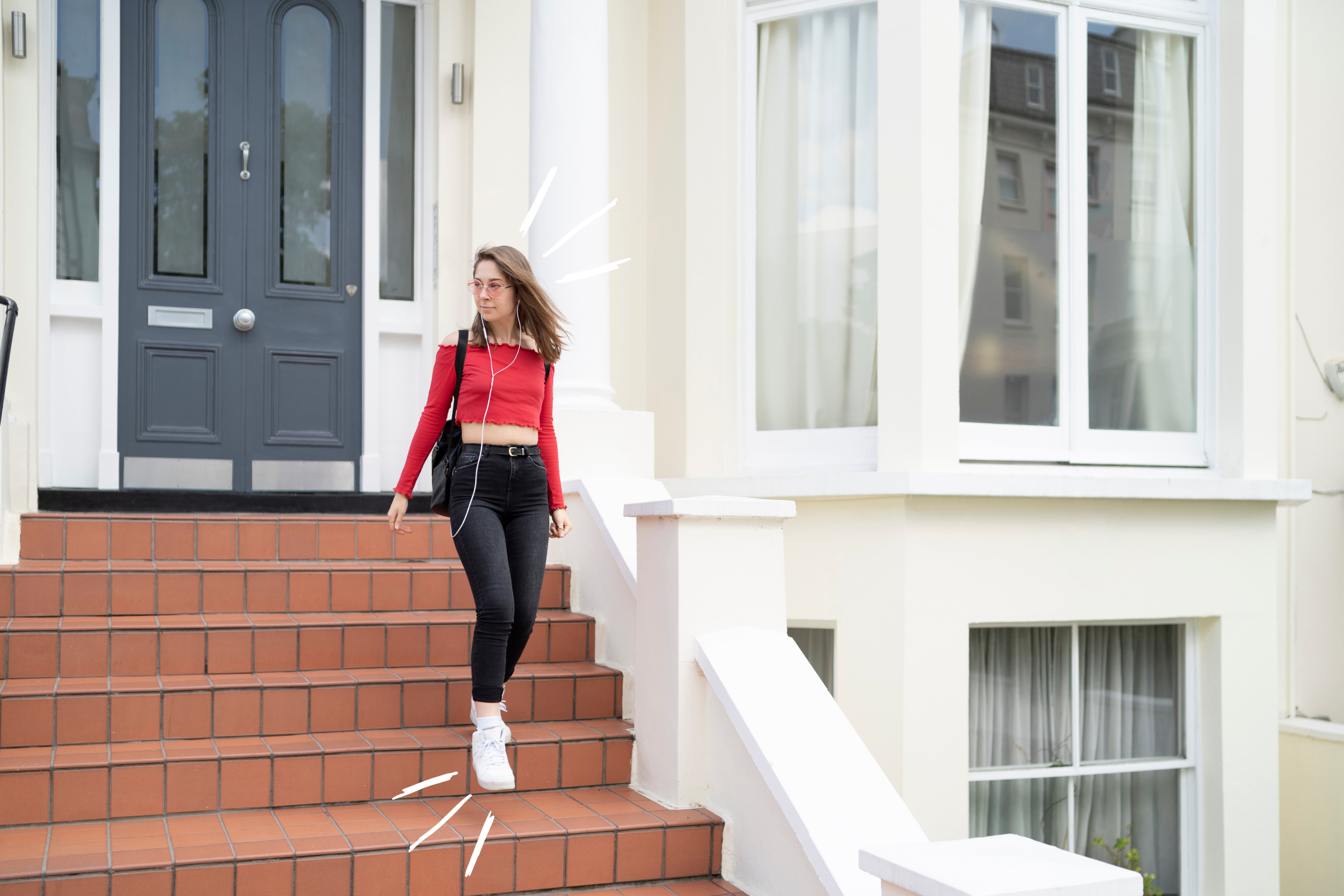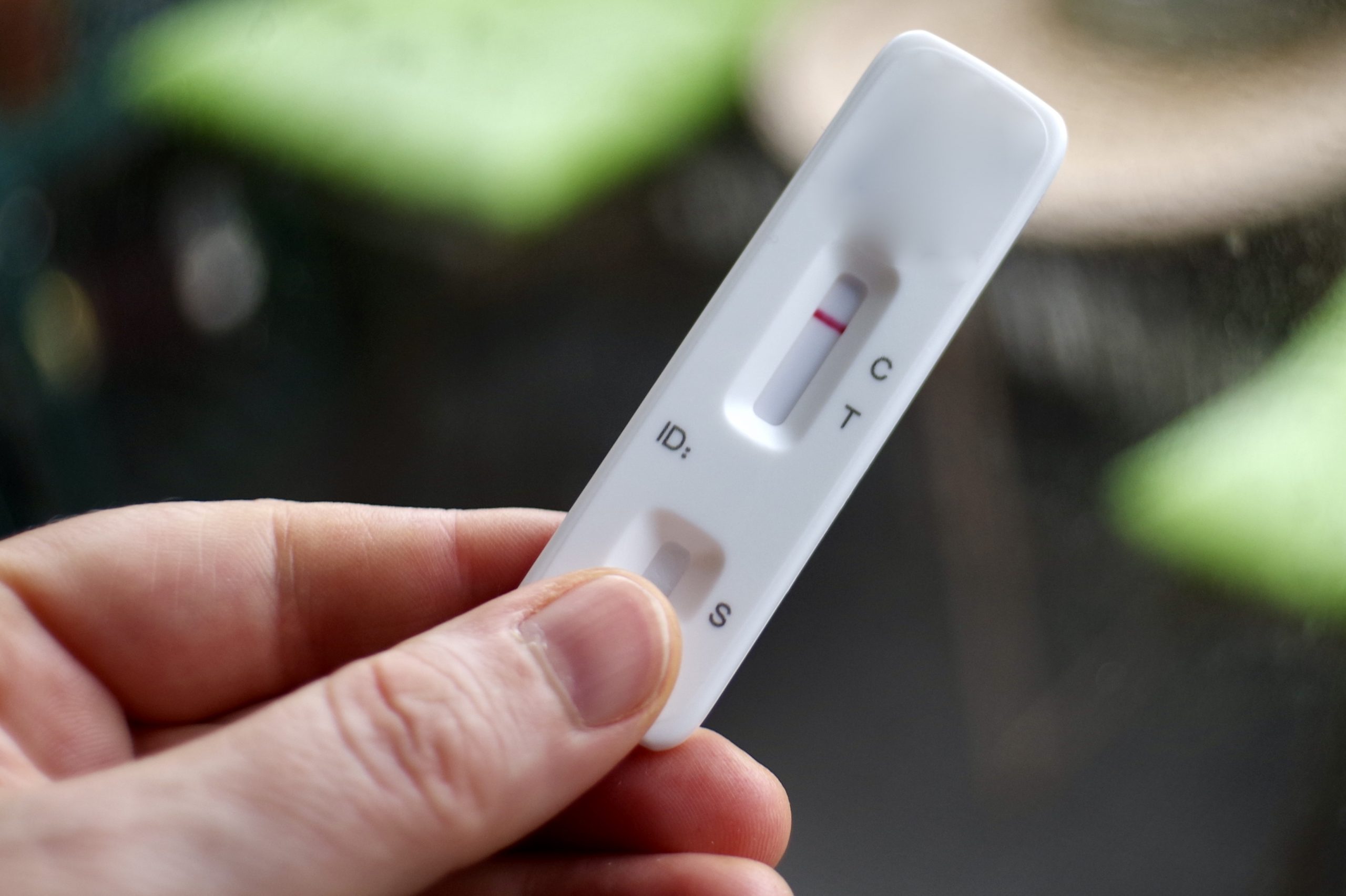Why has self isolation changed from 10 days to 7 - and what are the rules now?


Parenting advice, hot topics, best buys and family finance tips delivered straight to your inbox.
You are now subscribed
Your newsletter sign-up was successful
Recent changes to the rules mean people who are infected with Covid-19 in England can stop self-isolating up to three days earlier if they test negative twice - but why have self-isolation rules changed?
Those who have tested positive for Covid will now be able to end their quarantine period after just 7 days instead of 10 days, if they offer a negative lateral flow test on day six and day seven.
Experts predict that this change in the rules will enable up to 280,000 people to resume their Christmas plans after they were cancelled due to the positive test in the middle of December.
Why have self-isolation rules changed from 10 days to 7 days?
Health Secretary Sajid Javid said that self-isolation rules in England have changed due to new guidance from health experts.
The UK Health Security Agency (UKHSA) announced the change on December 22, saying that Omicron’s ability to spread quickly posed a significant challenge for public health services this winter. They also said, however, that the change to the isolation restrictions reflects "updated medical advice" which would be available to view "in due course".
The agency’s chief executive, Dr Jenny Harries, said that the shortening of the isolation period would still “help break chains of transmission” but it would also help to minimise “the impact on lives and livelihoods”.
With the revelation that the new variant spreads even faster than the original or Delta variant, many people were concerned we were would go back into lockdown this year.
Parenting advice, hot topics, best buys and family finance tips delivered straight to your inbox.
Mr Javid went onto confirm that the UKHSA was “very comfortable” with the protection of lateral flow tests. He said they were “very similar to 10 days of isolation without tests” in guaranteeing a lack of infection.
“I think this is a very sensible, balanced and proportionate step to take,” he said. “We want to reduce the disruption to people’s everyday lives caused by the pandemic.”
What are the new self isolation rules for December 2021?
If you test negative on day six and day seven of the 10-day isolation period, you may stop isolating.
The negative test can be from a lateral flow test, freely available from the government's website. You should also register your negative result with the NHS before leaving quarantine.
However if you continue to test positive on day seven, you must:
- Work from home if you can and do not go into work, school or other public places
- Avoid public transport and taxis
- Order food and medicine online or by phone, or ask someone to drop it off in a socially-distanced way
- Not allow visitors in your home, including friends and family
- Exercise in your home or garden if you have one, and do not go outdoors to exercise
The change to allow those testing negative on day seven to come out of isolation applies to everyone, regardless of vaccination status. It also applies to anyone currently quarantining as well as anyone who tests positive within the next few weeks.

Scotland and Wales have not adopted the same rule just yet. But said they would consider it in the coming days. Northern Ireland have also firmly said that they would not take on the new change “at this time” but would keep rules under review.
In the lead up to Christmas, with Omicron spreading rapidly throughout the country, many people had to cancel their festive plans as they tested positive for the virus in the 10 days before Christmas. Now, with the change in the rules, the 280,878 people who tested positive on December 15, 16 or 17 will now not have to spend Christmas Day in quarantine.
However, officials have warned that people should not come out of isolation early if they are still experiencing any of the classic or new Omicron symptoms.
These include:
- High temperature
- A new, continuous cough
- A loss or change to your sense of smell or taste
And may also include, according to the Zoe symptom study:
- Runny nose
- Headache
- Fatigue
- Sneezing
- Sore throat
Anyone who is ending their isolation period early is still strongly advised to limit contact with anyone vulnerable. They should also not visit crowded or unventilated spaces, and work from home where possible.
On announcing the change in the rules, UKHSA chief Dr Harries was also quick to urge anyone who hasn't come forward to get their Covid booster jab as soon as possible.
"As always, we urge everyone who is eligible to get their booster jab without delay. Wear a mask in crowded spaces, on public transport and in shops, wash your hands regularly and ventilate rooms well. If you have any COVID-19 symptoms stay at home and get a PCR test as soon as possible," she said.
Guidance from the Joint Committee on Vaccination and Immunisation (JCVI) recently changed to allow anyone over the age of 18 to get their Covid booster jab. It came as evidence from Imperial College London suggested a third dose of the Moderna or Pfizer vaccine is up to 85% effective at preventing serious illness as a result of the Omicron variant. The booster has also been shown to reduce the chance of infection and transmission in the population.
Recently, the rules changed for those double-jabbed to avoid isolation if they come into contact with someone positive for Covid-19. There is no change in this rule for anyone who not double-jabbed. They should still isolate for 10 days if they are a confirmed close contact.
When do the self isolation rules change?
The new self isolation rules are already in place, as of December 22 2021.
However, the change is just a “reasonable excuse” to end isolation early at the moment. The government says that it intends to update England’s legal isolation restrictions when Parliament returns from the Christmas holidays.
How long is self isolation in England now?
You only have to self-isolate for seven days in England now, following a change in the rules this week.
However to come out of quarantine, you must be able to show two negative lateral flow tests. You must take one on day six of the 10-day isolation period. This begins as soon as you receive a positive test or start to show symptoms. You then must take the other test on day seven, 24 hours later.
If both come back negative, you can stop quarantining on the seventh day. However, if you still have symptoms or continue to test positive, you must continue to isolate.

Grace Walsh is a health and wellbeing writer, working across the subjects of family, relationships, and LGBT topics, as well as sleep and mental health. A digital journalist with over six years experience as a writer and editor for UK publications, Grace is currently Health Editor for womanandhome.com and has also worked with Cosmopolitan, Red, The i Paper, GoodtoKnow, and more. After graduating from the University of Warwick, she started her career writing about the complexities of sex and relationships, before combining personal hobbies with professional and writing about fitness.